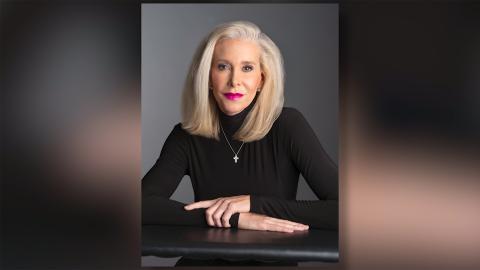
How Do I Deal with Grief?
Grief is an emotion of loss. Perhaps you have felt that emotion when a parent or your spouse moved away after a divorce, when you broke up with a boy- or girlfriend, or when you moved away from your old neighborhood. Even losing a valued object (such as a class ring or some other memento) or an important ball game creates a sense of grief. There's a feeling of separation and loss.
Grief and love are two very similar emotions -- if you're capable of love, you are capable of grief. Only a person who never loves never grieves. When you love someone, you feel a oneness and fulfillment with that person. But you also open yourself up to the possibility for grief -- when he or she break-ups with you, moves away or dies. The relationship is over and that strong emotion of love mutates like some hideous sci-fi monster into equally strong grief.
"Grief," then, is the B-side side of love. Love expresses emotional oneness, grief expresses emotional separation. "Mourning" is the long, painful process of working through that grief. (In other words, grief is what we feel, mourning is how we react to it.) It's natural to feel up one day and down the next. The strong feelings of grief may seem frightening when we first feel the full force of this powerful emotion.
But like other emotions, it's "normal," natural," and "okay."
Each person, however, responds differently to a single death. In the case of a famous person, the grief may be very short-lived since you didn't know them personally. But, on the other hand, if you had a strong emotional attachment to that famous person -- who didn't know you -- there may be intense grief. Here are some general patterns in how most people experience grief.
Stage One: Shock, numbness, disbelief (one to three days)
"I just can't believe it!" When you first heard the news, you probably felt immediate sense of shock and disbelief. Like "denial" in the dying process, disbelief insulates our emotions so we can deal with immediate demands. If it is a close loved one there may be the tasks of notifying friends and relatives, calling our pastor, letting the school know we'll be out for a few days, cleaning the house for visitors, and so on.
Once the initial numbness wears off, it's normal to cry -- everything from watery eyes to uncontrollable sobbing. Crying is a healthy emotional expression of grief, so don't feel that you're being "weak." And ignore ignorant cliches like "smile and the whole world smiles with you, cry and you cry alone."
And it's not unusual to feel anger toward the person for dying: "How dare you leave me to suffer like this!" You may feel angry at the medical staff for not saving your loved one's life -- even though the doctors and nurses did everything possible. And it's not uncommon to feel angry at God -- even if you're a very devout believer. It's "okay"!
Allow these emotions to be expressed to those you can trust with your feelings -- your family, your best friend, a therapist, or a clergy person.
Stage Two: Painful longing and preoccupation with memory and mental images (up to one year)
We often think that the funeral is the hardest time for the survivors, so we may bring in food, visit the family, and attend the funeral. But afterward, we assume they've started the work of putting their life back together. Actually, Stage Two becomes most intense between the second and fourth week afterward. The following experiences are strong for about the first three months and then gradually begin to diminish over the next six months to a year:
- Painful longing to be with and talk with the dead person
- Preoccupation with the death (you can't think of anything else)
- Memories of dead person
- Mental images of the dead person
- Sensing that the dead person is in the same room
- Sadness
- Tearfulness
- Inability to sleep
- Lack of concentration
- Loss of appetite
- Loss of interest in things you once enjoyed
- Irritability
- Restlessness
You may want to post this list on the refrigerator as fair warning to friends and family members. (In 1800s those grieving bore black "mourning bands" on their arms to announce, "Take it easy on me!")
And don't be afraid to turn to professionals for help during this difficult time. Your doctor may prescribe sleeping pills or tranquillizers so you can sleep nights. School counselors, youth workers, or pastors can provide emotional support and suggestions for overcoming this time of loss. If they can't, they can refer you to those who can.
Stage Three: Resolution and resumption of ordinary life activities (within one year of death)
Starting at about six months, most of us will begin getting back into our normal activities. (Life will never be "normal" again, we can continue many previously "normal" activities.) We'll continue to be broadsided by occasional waves of grief described in Stage Two. But these will become less and less frequent, even though they may be just as intense. Stage Three is summed up with:
- Acceptance of the death
- Decreasing sadness
- The ability to recall past experienced with the deceased with pleasure rather than pain
- Resuming ordinary activities
How should I respond to those grieving?
So how do we respond to those going through the mourning process? By saying stuff like "I understand exactly how you feel." Brrrrrooooonk! Wrong answer!
We may have both lost a grandfather, but there are a kabillion differences between my loss and yours. Things you don't understand or know. What kind of relatioship did we have? Were we close or did we see each other only at Christmas? What were the last words spoken? Were they loving, harsh -- or worse -- indifferent? What kinds of questions, thoughts, and feelings are churning in my mind? What is my concept of death? Or life after death?
See, you really don't "understand." And neither do I completely understand your loss. But I can help by sharing how I felt at my grandfather's death. And in that way, I'm giving you freedom to share your grief.
An older friend recently told me the advice her aunt gave her at the death of her mother twenty years ago. "Don't embarrass us and your self making a scene by crying." Fortunately, "keeping a stiff upper lip" and squelching our emotions went out of style with my grandfather's ties!
"You don't have to talk about the details of the death," is another innocent, but insensitive statement. We somehow think we'll cause them more pain by them talking about it, but it's actually a part of healing. For instance, when my wife's father died, her mother must have told the story of his death ten times -- how she found him collapsed on the dining room floor, how she called 9-1-1, how she tried CPR that she had seen on TV, how she rode with him in the ambulance. But interestingly, each time she told it, she seemed to gain emotional strength and comfort. Talking about the details -- even if they're cancer, suicide, drowning, murder, or AIDS -- helps us past the denial stage and on to dealing realistically with the death.
So, what the best thing to say? The most helpful thing is:
Yep, you can't go wrong with nothing. A shared tear, a squeezed hand, a hug, or just being there is usually the best help. Whatever you do, don't spout off pat answers.
Where is God in this tragedy?
The book of Psalms is filled with such questions. "My God, my God, why have you forsaken me? Why do you refuse to help me or even listen to my groans? Day and night I keep on weeping, crying for your help, but there is no reply" ( ).
Where is God? He is right there beside us as we struggle with the many questions surrounding the death. He may not write the answers across the sky, but His Son Jesus Christ understands our questions.
Why do good people die so young? Jesus answers, I understand your question. I died at thirty-three.
Why do some people have to die such painful deaths? I understand your pain. I was beaten, whipped, and crucified.
I miss him/her so much here on earth. I understand your grief. I left heaven to come to earth.
Why can't people just live forever and not have to die? I understand the problem. I came to give you eternal life.
God does understand. He wants to hear what you're feeling.
So in review, grief is a normal -- but sometimes a confusing and uncontrollable -- emotion. And mourning (dealing with grief) is a long, painful process. But remember: you will once again enjoy living and loving, you will get your appetite back, the pain will diminish, you will be able to sleep soundly again and you will be able to enjoy pleasant memories of the deceased.
If you or someone you love needs prayer, please call (800) 759-0700.
© James N. Watkins. Used with permission.




